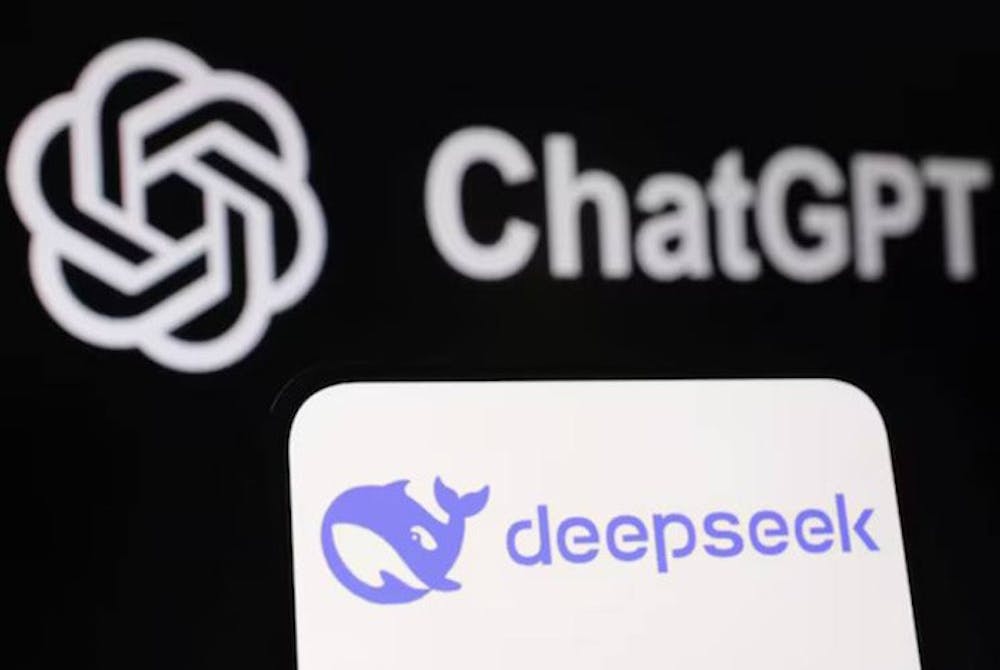By Parisa Burton
Nation & World Editor
DeepSeek, a Chinese artificial intelligence model, released its latest version of R1 on Jan. 20, quickly capturing the attention of consumers and investors alike. Its wide capabilities and low costs raise important questions about the future of AI, concerning whether the U.S. will lose its market dominance in the industry.
According to The New York Times, Chinese engineers claimed to have spent 10 times less on building DeepSeek’s technology than Meta spent on its latest AI technology. Additionally, they only required 2,000 specialized computer chips, whereas global AI leaders use up to 16,000.
“The days of the U.S. stock market’s outperformance on a global stage are about to end,” said Michael Hartnett, a Bank of America global strategist, in Business Insider.
Hartnett pinpointed DeepSeek as an explanatory variable for this downfall. In recent years, the fortunes tech companies spent on AI infrastructure went unquestioned and are predictably set to exceed a quarter trillion dollars in 2024, according to Forbes. However, with DeepSeek’s rise, a key question emerges: if it demands less energy and investment than U.S. rivals like ChatGPT, why would investors continue to put all their eggs in the U.S basket?
According to Hartnett, DeepSeek represents the peak in AI expected returns on capital expenditures. In other words, its investment efficiency has surpassed that of its competitors, leaving them unlikely to recover, which has sent major U.S. tech stocks tumbling.
Reuters reported that following DeepSeek’s launch, the Nasdaq stock index declined by 3.1% on Jan. 27, with NVIDIA shares falling by nearly 17%, marking the largest one-day loss for a U.S. stock. On this same day, DeepSeek became the “top-rated free application available on Apple's App Store in the United States.”
President Donald Trump described the company’s release as a “wake-up call” for U.S. tech industries to stay “laser-focused on competing to win.”
According to White House Press Secretary Karoline Leavitt, the National Security Council is working to assess potential national security risks to “ensure American A.I. dominance.”
The U.S. concern about losing the AI race to China has been building up, even before DeepSeek’s arrival. According to Reuters, former President Joe Biden’s administration imposed restrictions on exporting AI chips and related technology to China to curb their AI growth. This focus on security has continued under the current administration.
On Jan. 30, members of Congress urged Trump to restrict the export of NVIDIA’s AI chips, citing concerns that DeepSeek’s recent sophisticated model made “extensive use” of NVIDIA’s chips. These restrictions are meant to prevent China from accessing its most advanced chips.
The U.S. Department of Commerce is currently investigating NVIDIA over accusations that its restricted chips were smuggled into China for use by DeepSeek, according to Reuters. The company denied any violations, insisting its partners comply with export laws.
According to the BBC, given these constraints, DeepSeek will likely adopt innovative strategies to maximize the effectiveness of its available resources.
DeepSeek has put U.S. tech giants under intense scrutiny, demonstrating that AI advancements can be both cost-effective and environmentally sustainable. ChatGPT emits over 260 tonnes of carbon per month. “The equivalent of 260 flights from London to New York,” according to the BBC.
In contrast, according to AP News, DeepSeek’s model operates with significantly less energy demands, having been trained for just $5.6 million using less powerful AI chips not restricted by U.S. export controls.
DeepSeek’s emergence has sparked significant attention in the AI industry, highlighting the potential for cost-effective and energy-efficient advancements. As U.S. companies face pressure from investors to innovate more efficiently, the battle for AI supremacy forces policymakers to reconsider what defines success in the AI race.







